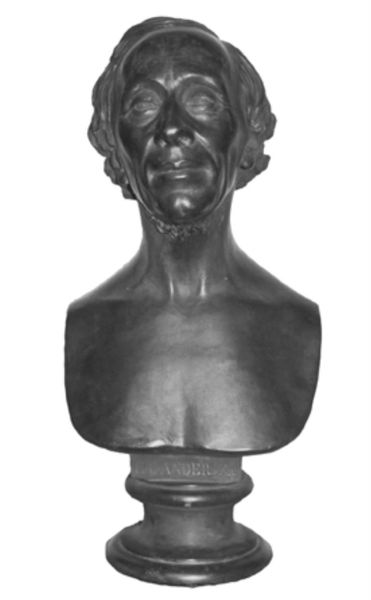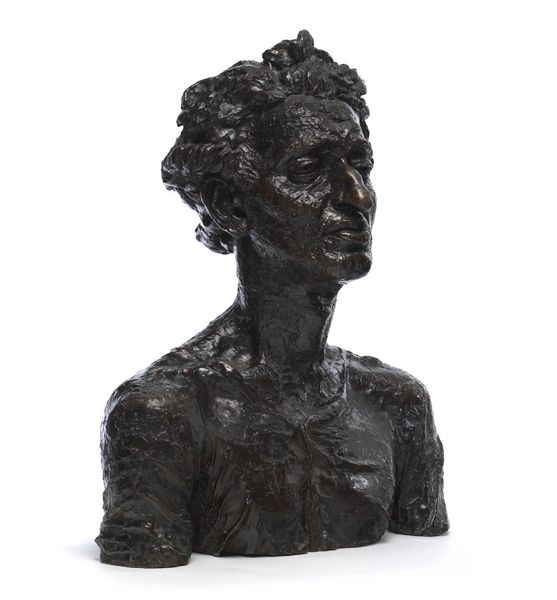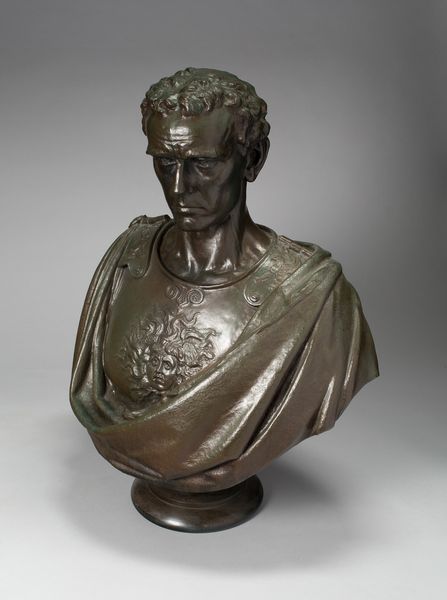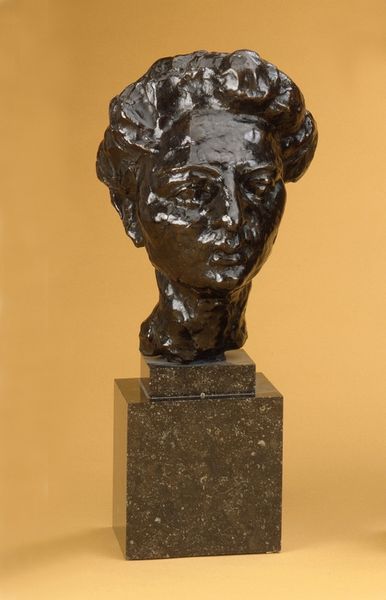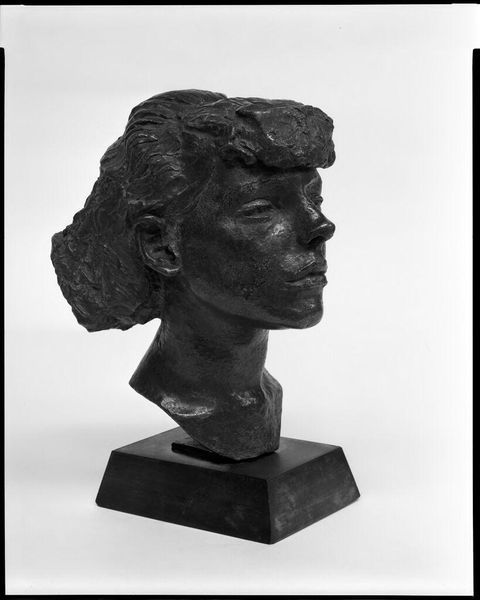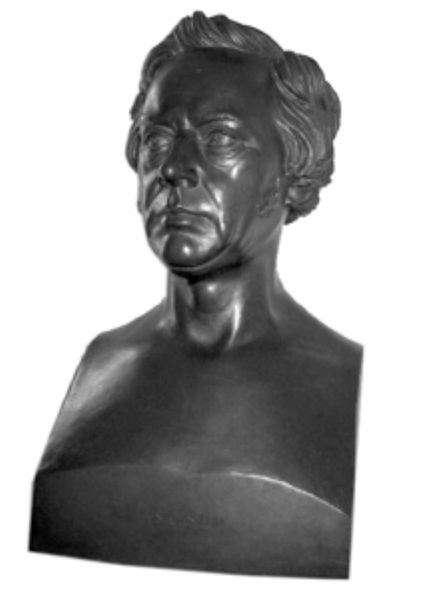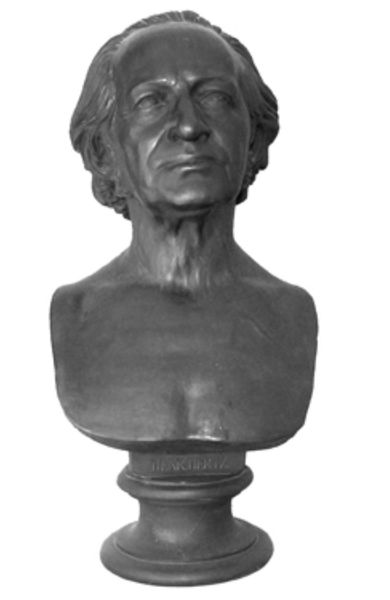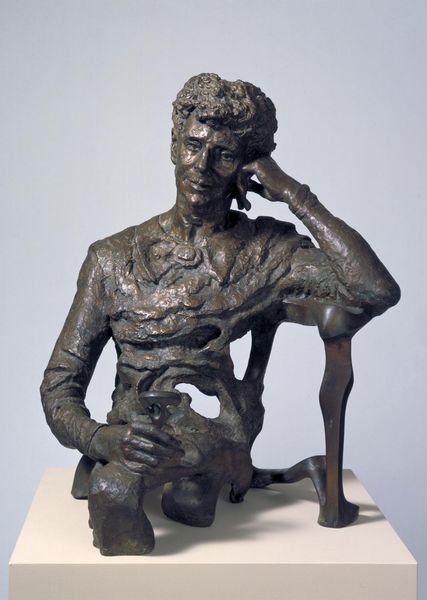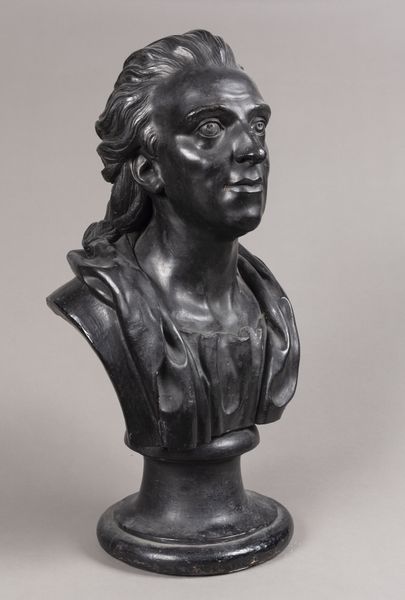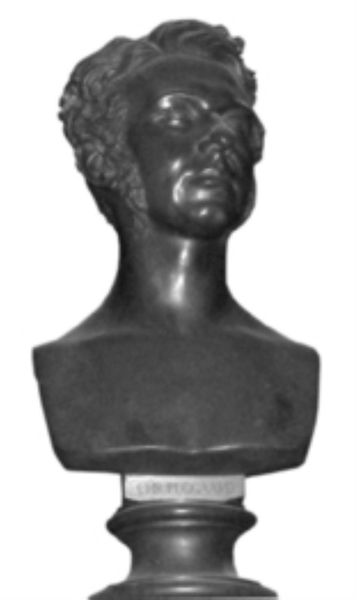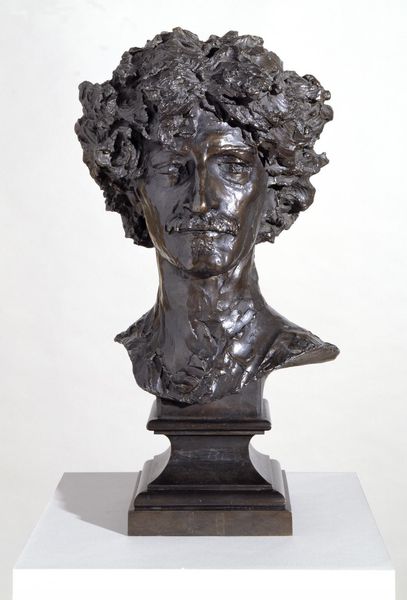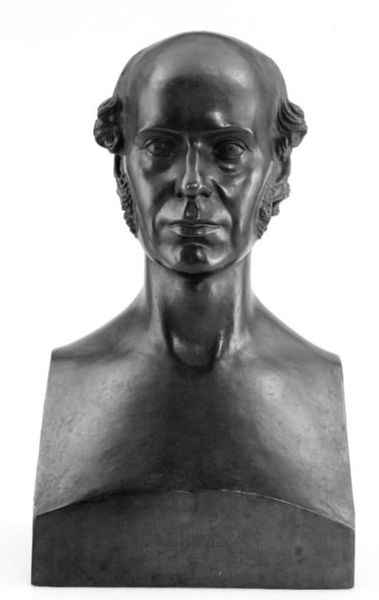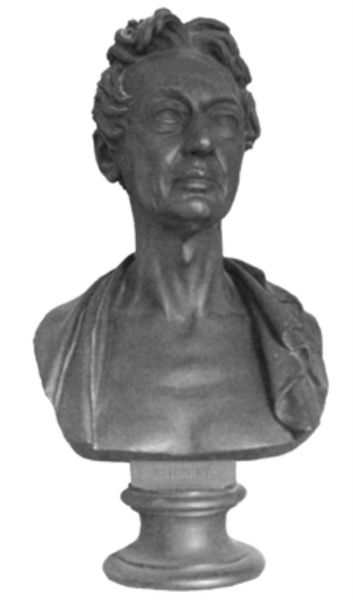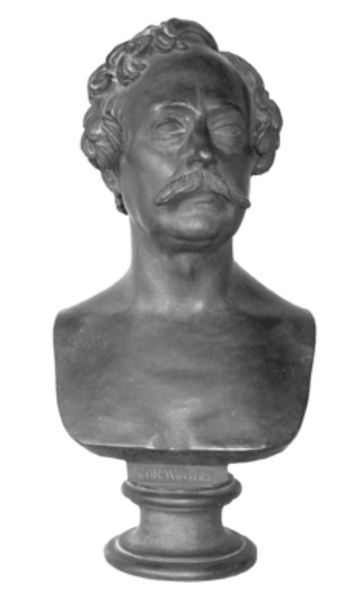
bronze, impasto, sculpture
#
portrait
#
statue
#
square composition
#
sculpture
#
bronze
#
impasto
#
sculpture
#
romanticism
#
modernism
#
statue
Copyright: Public domain
Editor: Here we have Auguste Rodin's bronze sculpture, "Portrait of a Man," the date of which is unknown. It's a fairly serious piece; what do you see in its composition that informs our understanding? Curator: I'm immediately drawn to the interplay of light and shadow across the bronze surface. The impasto technique Rodin employs – the thick application of material – creates a highly tactile surface, even in reproduction. How do you think the rough surface treatment influences the way we read the sitter's expression? Editor: I guess the varied textures almost create an impressionistic take on his face – less about exact details and more about the overall impact. The eyes especially are obscured. Curator: Precisely. Rodin subverts the traditional portrait by prioritizing the material itself. Look at how the forms break down into planes of light and shadow, creating a dynamic visual field. The solidity of bronze, traditionally a material of permanence and commemoration, is here challenged by the seemingly fleeting effects of light. Do you perceive a tension in that contrast? Editor: Definitely! So, even though it's bronze, there's this feeling of movement and incompleteness because of the play of light. The traditional expectation for bronze portraiture isn't really met here. Curator: Precisely. The artist rejects the illusionistic polish common to much academic sculpture. We are left with the sheer presence of the bronze itself. Editor: This discussion makes me think differently about the intention of portraiture – beyond likeness, there's so much potential in form and texture. Curator: Indeed, considering materiality as an artistic strategy can lead to richer understandings.
Comments
No comments
Be the first to comment and join the conversation on the ultimate creative platform.
